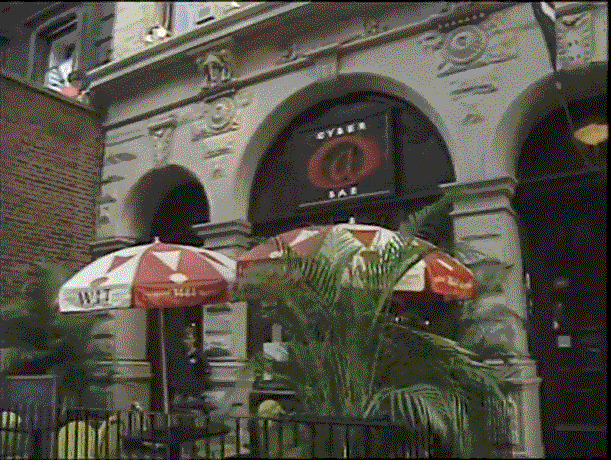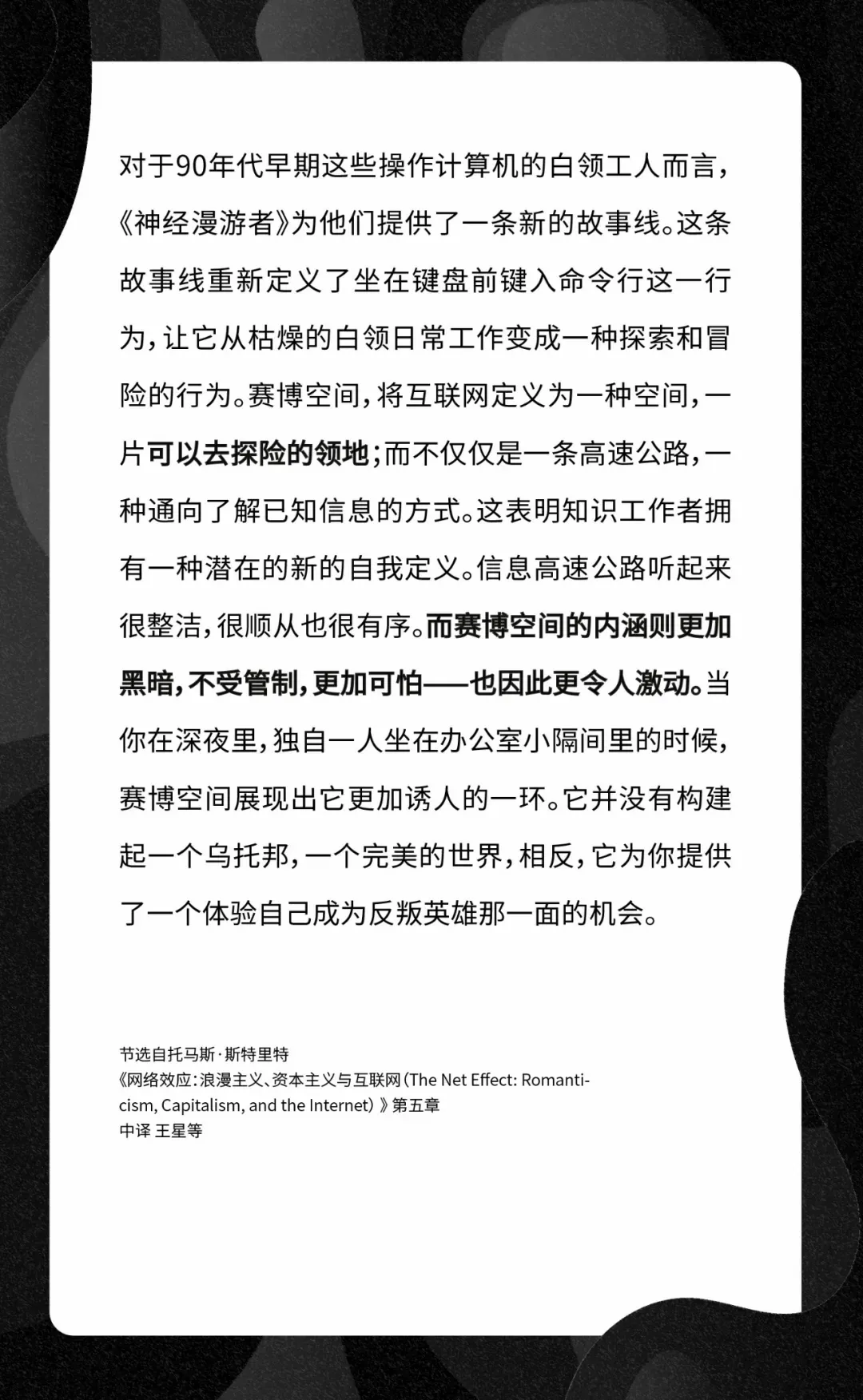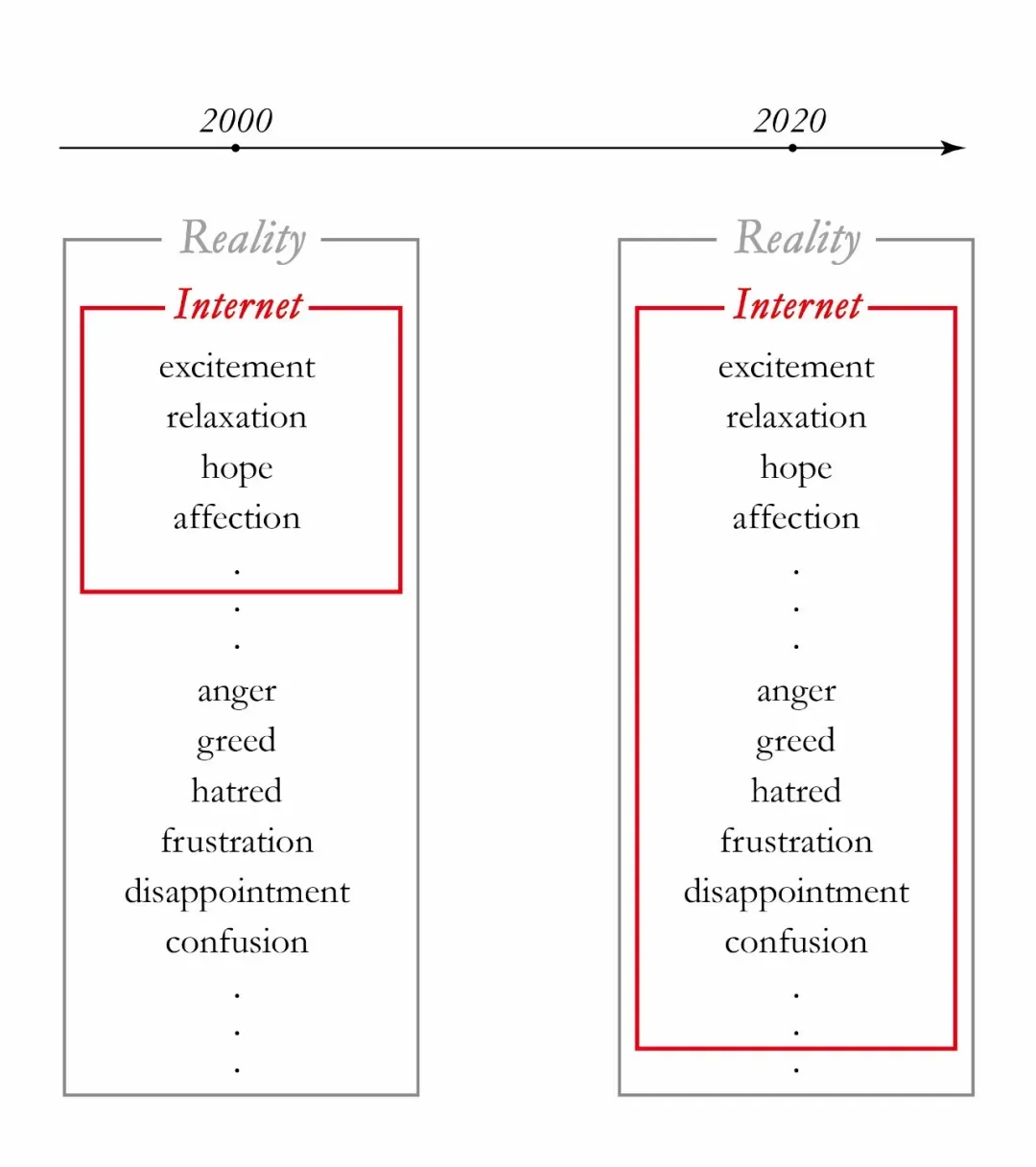From fashion to necessity, the internet must have taken over more and more real-world emotions
In early 1995, a new coffee shop opened at 12 St. Mark's Square in New York City, offering a service many had not heard of: Internet access.
Newspapers and TV shows have reported on this curious shop one after another, but some hosts and guests don’t even know how to pronounce the characters in the middle of the sign — Cyber @ Bar. A year later, the coffee shop closed due to poor management, but many New Yorkers still regard it as "the hippiest Internet Cafe" of the 1990s.

In 2020, we can also find cafes of a similar nature in many cities. However, this flavor enhancer is no longer the Internet, but replaced by cute and soft animals. In these "kitten/puppy cafes", consumers drink coffee with one hand and play cats and dogs with one hand; in the very "healing" activities, customers get comfortable and relaxed comfort, and also get the identity confirmation of petty bourgeoisie.
Fundamentally, these places are different from busy and cramped workspaces, symbolically and practically, they are an escape from production and labor. In these leisure and entertainment places, the atmosphere is relaxed and soft, people are smiling, and no one is willing to raise their voices to scold and destroy their purpose of coming here to consume - a good mood.

The emergence of this small cafe and the public's reaction to it can to a certain extent summarize the social status of the Internet in its infancy. At that time, the Internet was similar to the "ragdoll cat" in the cafe today. It was a light luxury add-on item, and it was a fashion and fashion used by the middle class to decorate their lifestyle. In the virtual space at that time, netizens obviously wouldn't speak ill of each other at any time, just like in a cafe with cats.
It’s important to note, though, that the café metaphor misses another characteristic of the early days of the internet—the technology’s strong countercultural connotations in its infancy.
As we have mentioned many times in fantasy and ideals, the "geeks" at that time expected that "cyberspace" would bring about a whole new human order; with this technology, a group of "native people of the future" could Fundamentally out of the chain of existing capital and power. If I had to give these emotions some names, it would be romantic, exciting, novel.

It can be said that in the early days of the Internet, the matter of "connecting to the network" itself had a strong implied meaning: it means that you are already an elite member who has mastered the niche Internet technology and is a member of the elite. Trendy pioneers who are willing to break the rules are also a member of this loose or tight "special group". At this level, the fact of going online has already selected a group of groups with the same hobbies and similar beliefs . It is not hard to imagine that there will not be so many life-and-death battles between them.
From this perspective, we might look at the increase in “bad emotions” on social networks this way— not that our negative emotions have necessarily increased over the past two decades, but that the variety of emotions that the Internet has taken over has greatly increased.
If the online world in the early days was just the counterpart of affordable luxury cafes in real life, then now, it is cafes, restaurants, wet markets, libraries, schools, government buildings, highways—everything in real physical space, even More.

Of course, we also have to admit that, from the ratio of the screen time of various websites and apps, we can see that this cyberspace has changed from advocating fun to advocating efficiency, from dreaming of digital freedom with a romantic personal touch. The market has been transformed into powerful control and governance dominated by the state machine. In this context, it is difficult for the residents of the virtual territory to be so hippie and happy.
Follow the WeChat public account Dune Research Institute to get first-hand updates
Link to the original text of this article: From “luxury places” to “all places”, the Internet is taking over more and more real-world emotions
Other articles under the general topic of internet reflection: #reflectioninternet
Like my work? Don't forget to support and clap, let me know that you are with me on the road of creation. Keep this enthusiasm together!

- Author
- More